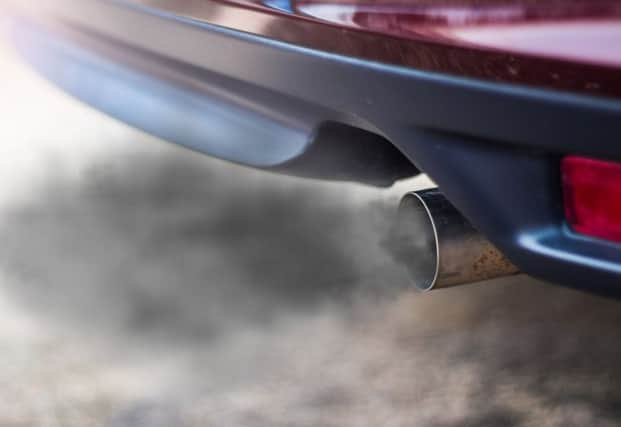Ilona Amos: Steps must be taken to slash toxic fumes and save lives


Recent research shows it is the number one environmental cause of deaths, killing around 6.5 million people annually – more than road accidents, violence, fires and wars combined.
Scientific studies have shown exposure to poisonous particles is linked with respiratory illnesses such as asthma and chronic lung disease, as well as cancer, heart attacks, strokes and even dementia. It can also lead to low birth weight and delayed development in babies whose mothers were exposed while pregnant. Children, the elderly and people with pre-existing health problems are also disproportionately affected.
Advertisement
Hide AdAdvertisement
Hide AdWorld Health Organisation figures show one in nine deaths in 2012 were attributable to air pollution. The figure is 14,000 across the UK, including 2,500 of north of the border.
It’s thought the effects of poor air quality leave Scotland with an annual bill exceeding £1.1 billion once you add up lost work days and the cost to struggling health services. So it’s pretty depressing news that there are now five new additions to the list of pollution hotspots in Scottish towns and cities.
There are now 38 official pollution zones, where levels of poisonous particles exceeded legal safety limits. Traffic is the main culprit – diesel vehicles especially. Our love for the car is actually killing us. Environmental campaigners have described it as “a public health crisis”. It’s also bad for the planet. It’s obvious that serious action must be taken as soon as possible.
Smoking has already been banned in cars carrying children but it seems to be acceptable to drive them about in places where air quality standards are breaking legal limits. Studies suggest levels of poisonous particles floating around inside vehicles can be even more concentrated than in the open air.
There are a range of measures that can make a difference, including setting up low-emissions zones in towns and cities, where the most polluting vehicles are banned or must pay a fine to enter. These have been shown to reduce air pollution levels in many European cities where they have been introduced.
As well as taking vehicles off the road, we need to see a dramatic shift to greener transport. Efforts are already under way to encourage a switch to electric-powered cars, though there are also difficulties with this - a vastly increased demand for electricity. Another option, which is particularly suited for heavy goods vehicles, is hydrogen fuel cells. Engines run on hydrogen produce zero emissions, with only demineralised water coming out of the tailpipe. A £21 million project is currently being trialled in Aberdeen to test the technology.
The Scottish Government has invested nearly £13 million in its Green Buses Fund, but more must be done. Bringing in more pedestrianised areas and improving and extending cycle networks would make a big difference.
A recent survey found 62 per cent of Edinburgh residents think the capital would be a better place to live and work if more folk used bikes. I do own a bike, but admit I’m reluctant to risk life and limb on a daily commute through heavily congested streets because of both pollution and risk of an accident. Cycle routes in urban areas need to be made safer and cleaner if we want to get people pedaling. Now that would be a breath of fresh air.